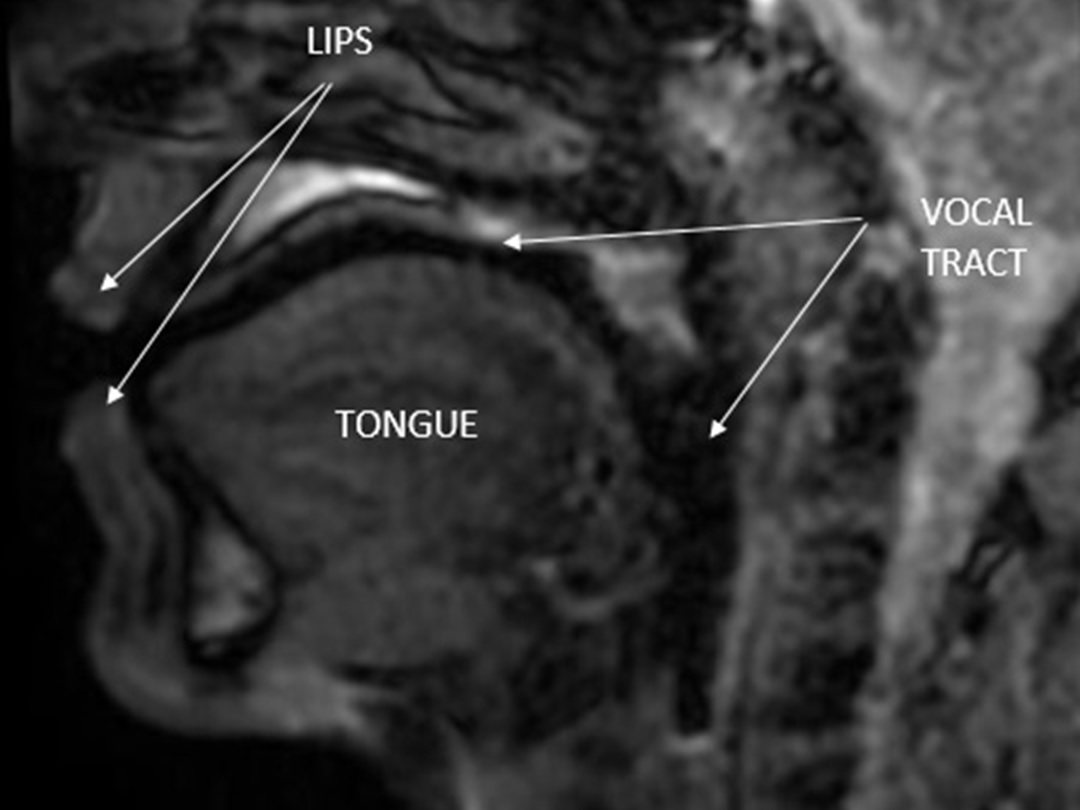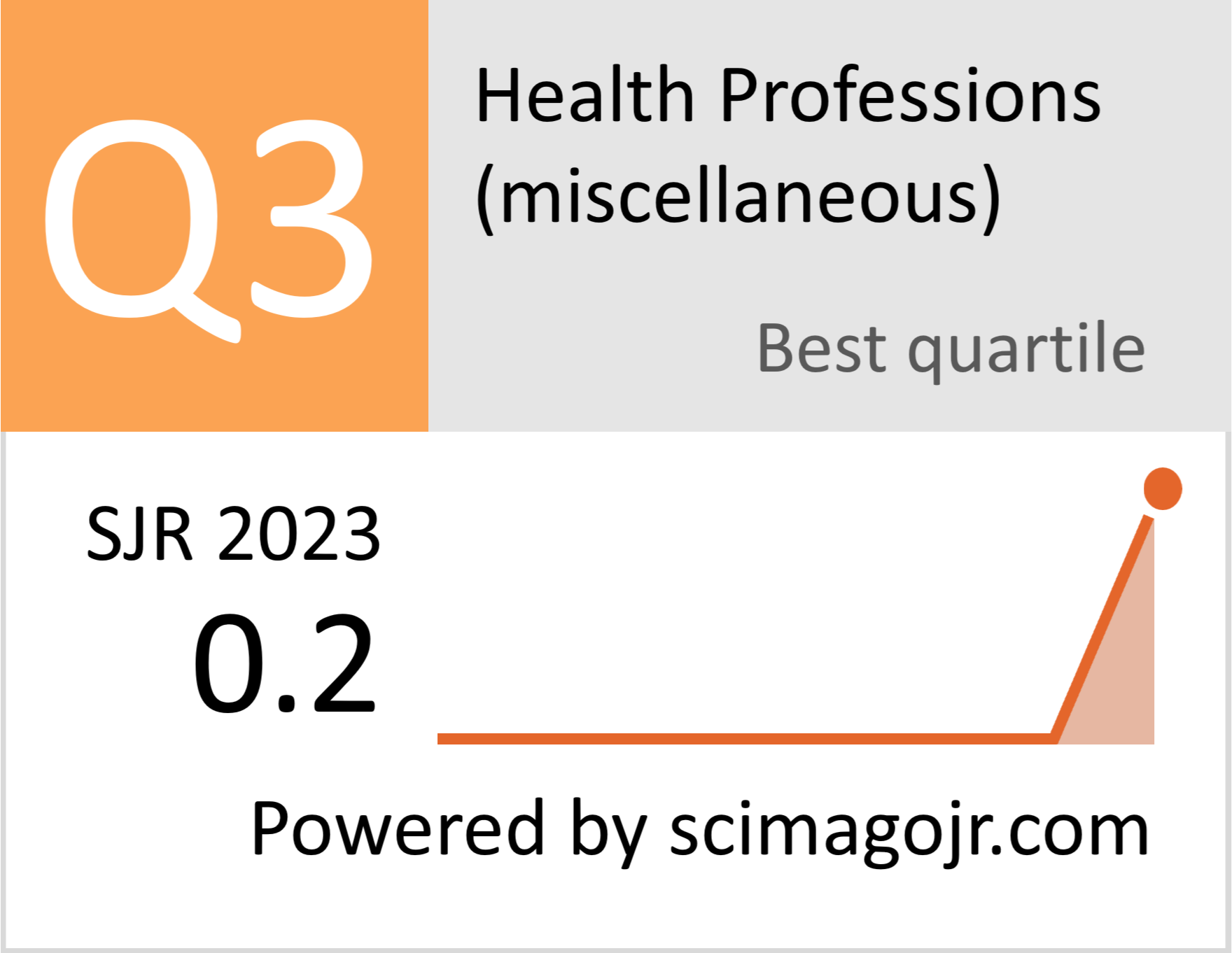Vocal tract physiology and its MRI evaluation
Fisiología del tracto vocal y su evaluación por resonancia magnética

This work is licensed under a Creative Commons Attribution-NonCommercial-NoDerivatives 4.0 International License.
Show authors biography
Introduction. The rapid technological evolution in Magnetic Resonance Imaging (MRI) has recently offered a great opportunity for the analysis of voice production.
Objectives. This article is aimed to describe main physiological principles at the base of voice production (in particular of vocal tract), and an overview about literature on MRI of the vocal tract. This is presented in order to analyze both present results and future perspectives.
Method. A narrative review was performed by searching the MeSH terms “vocal tract” and “MRI” in Pub Med database. Then, the obtained studies were subsequently selected by relevancy.
Results. Main fields described in literature concern technical feasibility and optimization of MRI sequences, modifications of vocal tract in vowel or articulatory phonetics, modifications of vocal tract in singing, 3D reproduction of vocal tract and segmentation, and describing vocal tract in pathological conditions.
Conclusions. MRI is potentially the best method to study the vocal tract physiology during voice production. Most recent studies have achieved good results in representation of changes in the vocal tract during emission of vowels and singing. Further developments in MR technique are necessary to allow an equally detailed study of faster movements that participate in the articulation of speaking, which will allow fascinating perspectives in clinical use.
Article visits 988 | PDF visits 519
- Brown MA, Semelka RC. MR imaging abbreviations, definitions, and descriptions: a review. Radiology. 1999;213:647–62. doi: https://doi.org/10.1148/radiology.213.3.r99dc18647.
- Harrington J, Cassidy S. Techniques in speech acoustics. Text, speech and language technology. Dordrecht: Springer; 1999. doi: https://doi.org/10.1007/978-94-011-4657-9
- Stevens KN, Kasowski S, Fant CGM. An electric analog of the vocal tract. J Acoust Soc Am. 1953;25(4):734. doi: https://doi.org/10.1121/1.1907169
- Fant, G. The acoustic theory of speech production. The Hague: Mouton; 1960.
- Stevens KN, House AS. Perturbation of vowel articulations by consonantal context: an acoustical study. J. Speech Hear. Res. 1963;6:111–28. doi: https://doi.org/10.1044/jshr.0602.111
- Behrens S, Blumstein SE. On the role of the amplitude of the fricative noise in the perception of place of articulation in voiceless fricative consonants. J Acoust Soc Am. 1988 Sep;84(3):861-7. doi: https://doi.org/10.1121/1.396655.
- Stevens KN. On the quantal nature of speech. J Phon. 1989;17:3-45. doi: https://doi.org/10.1016/S0095-4470(19)31520-7
- Flanagan JL. Speech analysis synthesis and perception. 2nd Ed. New York: Springer-Verlag; 1972. doi: https://doi.org/10.1007/978-3-662-01562-9
- Manzano Aquiahuatl, C., Guzmán, M. Rehabilitación vocal fisiológica con ejercicios de tracto vocal semiocluido. Revista de Investigación e Innovación en Ciencias de La Salud. 2021;3(1):61–86. doi: https://doi.org/10.46634/riics.68
- Sulter AM, Miller DG, Wolf RF, Schutte HK, Wit HP, Mooyaart EL. On the relation between the dimensions and resonance characteristics of the vocal tract: a study with MRI . Magn Reson Imaging. 1992;10(3):365-73. doi: https://doi.org/10.1016/0730-725x(92)90507-v
- Lingala SG , Sutton BP, Miquel ME, Nayak KS. Recommendations for real-time speech MRI. J Magn Reson Imaging. 2016 Jan;43(1):28-44. doi: https://doi.org/10.1002/jmri.24997
- Birkholz P, Kürbis S, Stone S, Häsner P, Blandin R, Fleischer M. Printable 3D vocal tract shapes from MRI data and their acoustic and aerodynamic properties. Sci Data. 2020 Aug 5;7(1):255. doi: https://doi.org/10.1038/s41597-020-00597-w
- Eslami M, Neuschaefer-Rube C, Serrurier A. Automatic vocal tract landmark localization from midsagittal MRI data. Sci Rep. 2020 Jan 30;10(1):1468. doi: https://doi.org/10.1038/s41598-020-58103-6.
- Vasconcelos MJ, Ventura SM, Freitas DR, Tavares JM. Towards the automatic study of the vocal tract from magnetic resonance images. J Voice. 2011 Nov;25(6):732-42. Epub 2010 Oct 16. doi: https://doi.org/10.1016/j.jvoice.2010.05.002.
- Echternach M, Markl M, Richter B. Dynamic real-time magnetic resonance imaging for the analysis of voice physiology. Curr Opin Otolaryngol Head Neck Surg. 2012 Dec;20(6):450-7. doi: https://doi.org/10.1097/MOO.0b013e3283585f87
- Bresch E, Narayanan S. Real-time magnetic resonance imaging investigation of resonance tuning in soprano singing. J Acoust Soc Am. 2010 Nov;128(5):335-41. doi: https://doi.org/10.1121/1.3499700
- Echternach M, Sundberg J, Arndt S, Markl M, Schumacher M, Richter B. Vocal tract in female registers--a dynamic real-time MRI study. J Voice. 2010 Mar;24(2):133-9. Epub 2009 Jan 29. doi: https://doi.org/10.1016/j.jvoice.2008.06.004.
- Echternach M, Sundberg J, Baumann T, Markl M, Richter B. Vocal tract area functions and formant frequencies in opera tenors' modal and falsetto registers. J Acoust Soc Am. 2011 Jun;129(6):3955-63. doi: https://doi.org/10.1121/1.3589249
- Barbiera F, Lo Casto A, Murmura B, Bortoluzzi G, Orefice I, Gucciardo AG. Dynamic Fast Imaging Employing Steady State Acquisition Magnetic Resonance Imaging of the Vocal Tract in One Overtone Male Singer: Our Preliminary Experience. J Voice. 2020 Jun 26;1997(20):30184-3. doi: https://doi.org/10.1016/j.jvoice.2020.05.016
- Hagedorn C, Proctor M, Goldstein L, Wilson SM, Miller B, Gorno-Tempini ML, Narayanan SS. Characterizing Articulation in Apraxic Speech Using Real-Time Magnetic Resonance Imaging. J Speech Lang Hear Res. 2017 Apr 14;60(4):877-891. doi: https://doi.org/10.1044/2016_JSLHR-S-15-0112
- Yamasaki R, Behlau M, do Brasil OdeO, Yamashita H. MRI anatomical and morphological differences in the vocal tract between dysphonic and normal adult women. J Voice. 2011 Nov;25(6):743-50. doi: https://doi.org/10.1016/j.jvoice.2010.08.005
- Yamasaki R, Murano EZ, Gebrim E, Hachiya A, Montagnoli A, Behlau M, Tsuji D. Vocal Tract Adjustments of Dysphonic and Non-Dysphonic Women Pre- and Post-Flexible Resonance Tube in Water Exercise: A Quantitative MRI Study. J Voice. 2017 Jul;31(4):442-454. doi: https://doi.org/10.1016/j.jvoice.2016.10.015



